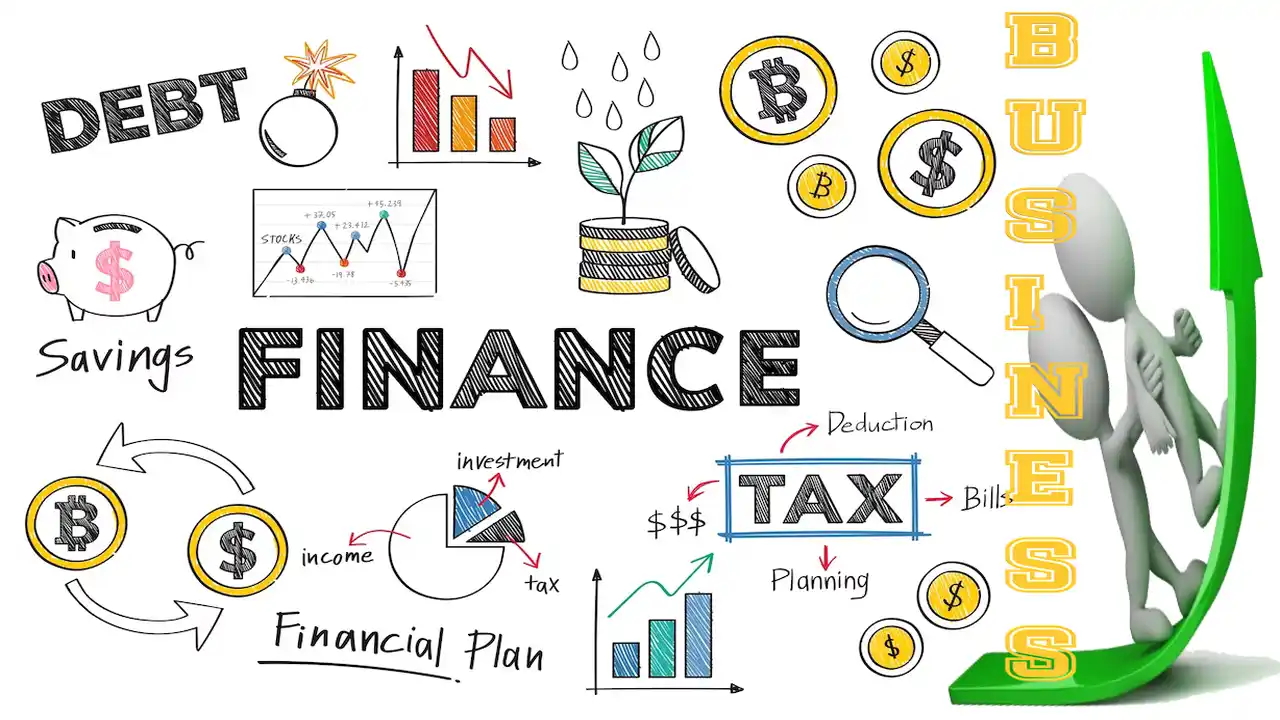“Financial capital” is shorthand for the money that entrepreneurs and company owners use to pay vendors and buy supplies. Their final purpose is to facilitate the production of commodities or the delivery of services to consumers. Bonds are a kind of loan that needs interest and can be returned over time; stocks, on the other hand, are a form of equity that gives investors a stake in a firm in return for their money. You may think of both of these options as ways to get money by raising funds. This topic outlines types of capital market which will assist you to achieve desired goals in your life.
Trading stocks and other assets between buyers and sellers is the main function of the capital market. There are primarily three types of people that participate in the capital markets: buyers, borrowers, and stockholders. Buyers are individuals who save money, while borrowers are individuals who borrow money. The term “capital market” refers to the marketplace for financial instruments such as stocks, bonds, and similar products. Due to its widespread usage, people often refer to banks and banking using this term in both broad and specific senses. In American parlance, this term can mean either the bond market or the savings and loan market. Any country can supply the spent units.
Types of Capital Market
In addition to trading instruments and processes, the market also includes individuals who buy and sell financial commodities and services. The company is also watched by other groups. Stock exchanges, share markets, debt markets, options markets, and other similar marketplaces are all examples of capital markets. Take a look at these types of capital market to expand your knowledge.
The Housing Market
Real estate markets facilitate the purchase and sale of both commercial and residential properties. Because of its potential to increase in value and provide income through rentals, real estate may be a crucial source of income for owners.
Markets for Artwork
Antiques, stamps, coins, and works of art are just a few of the valuable goods that individuals can purchase and sell at art markets. These marketplaces can play a role in preserving and valuing cultural heritage. Additionally, investors and antique collectors can find them to be a reliable source of money.
Market for Secondary Capital
The secondary market, a segment of the financial market, facilitates the buying and selling of old financial assets. Futures, options, bonds, and stocks are all part of this category. The terms “aftermarket” and “follow-on public offering” can describe this situation. The issuer has never sold securities to a buyer before. The primary marketplace is its name. After that, the author receives payment from the buyer. Immediately following the first sale of shares, the secondary market becomes the exclusive venue for all subsequent transactions. The “secondary market” distinguishes itself from the “primary market,” which handles freshly issued securities. It develops subsequent to the “primary market.” When the gain from the selling of securities goes back to the issuing corporation, we say that the market is primary.
In the secondary market, traders can actively trade a variety of assets, including shares, loans, and assets ranging from decentralized to controlled, and easy to hard to obtain. For shares bought by publicly listed companies, the most liquid secondary market is currently the main stock exchanges. Liquid controlled secondary markets allow investors to buy and sell securities listed on major stock exchanges like the Nasdaq, NYSE, or LSB. It is common practice to purchase and sell bonds and structured products “over the counter” or by contacting a broker-bond trader by phone. One way loans are often traded is through online loan markets.
The Stock Market
Buying and selling stocks and other shares is the main activity on equity markets. Being an equity owner is the same as being a shareholder in a corporation. One benefit of owning equity shares is the right to a share in the profits and assets of the business.
Bitcoin Marketplaces
Exchanges for cryptocurrencies allow users to purchase and trade digital assets like Bitcoin and Ethereum. So, these markets’ youth and inherent unpredictability attract speculators and investors seeking innovative ways to invest and hedge their money.
The Market for Derivatives
Derivatives markets facilitate the purchase and sale of financial instruments like options and futures contracts. The collateralized object’s worth is the determining factor in the value of these instruments. Also, the main reasons why people use derivatives are to hedge their bets or to predict how an underlying asset’s price will change.
Initial Public Offering
The only things that can be traded are newly issued securities or first-time trades on a major market. An IPO, or initial public offering, might follow. The term “new issues market” might also describe it. Methods that can help businesses raise capital include private placements, electronic initial public offerings (IPOs), preferential allocation, rights issues, and pre-selected share issuance. In many cases, the agent—such as an investment bank—sets the first share price. So, there will be no delay in finalizing the deal and having the companies’ shares sent to the stock exchange for trading.
In the capital market’s primary market, sellers deal directly with buyers of securities and retain the money. If the money from the sale of the securities goes to the issuer, we say that the market is primary. Those who wish to buy securities that have never been traded before do so. The main market is a great place for governments, public sector organizations, and businesses to issue bonds and raise capital. In the same way, a company might issue more shares during an IPO to create money. Underwriters, investment banks, and investors in securities typically work together as a fundraising syndicate to make this happen.
Credit Markets
A debt market is where issuers issue, acquire, and trade bonds and other debt instruments. The issuer will handle interest and principal repayment to the investor at a later date. These assets serve as documentation of the investor’s debt to the company that issued them.
Markets for Commodities
Physical things like metals, oil, and agricultural products are bought and sold at commodity markets. The makers and consumers of these goods hedge their bets against potential price fluctuations by participating in these marketplaces. Traders in commodities use these markets to speculate on future price movements. Also, various types of capital market exist, catering to diverse financial instruments and investment opportunities.
Investment Markets
The money markets facilitate the buying and selling of short-term debt instruments such as commercial paper and Treasury bills. People make and exchange these securities. Most investors buy these stocks because they are a surefire way to make money—they’re safe, they’re easy to sell, and they never go wrong.
FAQ
Can you Explain Capital Markets Law?
Legal professionals specializing in “security and capital markets law” aid financial institutions, individuals with securities to sell, and corporations looking to raise cash through the issuance of securities.
Tell me how the Stock Market Operates
The buying and selling of stocks, bonds, currencies, and other monetary goods takes place in capital markets. People often use the phrase “market for capital” to refer to the bond market as well as the stock market. Small businesses are supported in their efforts to expand into larger firms, and individuals are provided with tools to help them become entrepreneurs.
The Capital Market is Important, but Why?
Because of their central role in supplying the economy with funds, distributing risk, and maintaining financial and economic stability, capital markets are essential. A whopping 72 percent of the US economy’s action takes place in the capital markets. These venues are where businesses outside the banking sector can seek loans and equity.
Final Words
Participants in the stock markets buy and sell a wide range of financial assets. Institutions and households that supply goods and services include pension and retirement funds, life insurance providers, non-governmental organizations (NGOs), and businesses that aren’t banks but have excess funds. Capital market money is utilized by a wide variety of institutions, including individuals purchasing homes and vehicles, non-financial enterprises, and governments funding building investments and operations costs. The types of capital market has a strong role to play in the whole process which you should be aware of it while conducting various business activities. Read more about importance of capital market subject to expand your perspectives.






